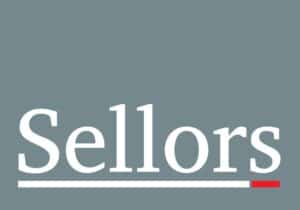Lifting the Corporate Veil in Commercial Litigation
 The reported judgement of Mr Justice Noonan on Friday, 19th May 2017 is believed to be one of the first of its kind in a case not involving a personal injuries action and may have significant implications in the context of commercial litigation.
The reported judgement of Mr Justice Noonan on Friday, 19th May 2017 is believed to be one of the first of its kind in a case not involving a personal injuries action and may have significant implications in the context of commercial litigation.
The High Court held that the principal owner of a building company, William Loughnan of W L Construction Limited, should be personally liable for some €735,000 costs of his firms dismissed action in the High Court due to what was described as “an abuse of process” and tainted by “fraud and dishonesty” by its owner. Many legal commentators believe the decision could have a chilling effect on litigation by companies as directors are normally considered protected against costs liability as a result of the corporate veil.
Many entrepreneurs create limited companies to operate their businesses, to facilitate commercial ventures and also to shield themselves from personal liability. The concept of the corporate veil refers to the central principal of company law set down by the House of Lords in 1897 in the case of Solomon v Solomon. This case established that a company has a separate legal identity than that of its shareholders. Therefore, the business maintains a separate and distinct identity from that of its owners or its related entities. However, the veil of incorporation can be disregarded in exceptional circumstances and this is known in legal parlance as “lifting” or “piercing” the corporate veil. Lifting the veil allows a Court to look behind the separate legal personality of the company and attribute liability to the promotors of the company in their personal capacity. Examples of where a Court might order the corporate veil to be lifted only occur in exceptional circumstances and, in the past, have included cases of fraud, reckless trading by director and on public policy grounds.
The principal, as set out by the House of Lords in Solomon v Solomon, has been consistently upheld by the Irish Courts over the years. The corporate veil can be lifted primarily in two ways: by way of legislation and discretion of the Courts. Mr Justice Noonan in the W L Construction Ltd. case held that the Court had clear jurisdiction to make orders holding a party liable for costs of proceedings in circumstances of “bad faith” and where Mr Loughnane was, ultimately, responsible for directing and overseeing a claim that “ultimately transpired to be fraudulent and a manifest abuse of process”.
The High Court ruling may well send a shiver down the spine of many company directors who contemplate contentious commercial litigation. It serves as an important cautionary reminder to company directors that the benefit of separate legal personality is not absolute and can be lifted by the Courts in exceptional circumstances. In essence, the principal of the corporate veil remains strong, but it is not impenetrable.
Contact Us
For more information on the content of this topic, please contact Ronan Hynes, Partner at Keating Connolly Sellors, at 061 414 355 or [email protected].
The material contained in this article is for general information purposes only and does not constitute legal or other professional advice. We advise people to always seek specific expert advice for their individual circumstances.

